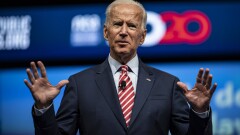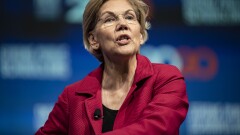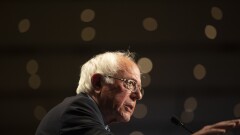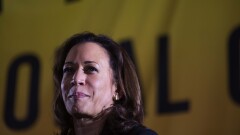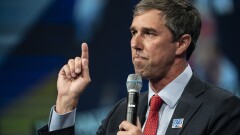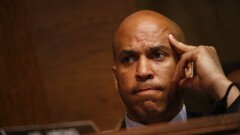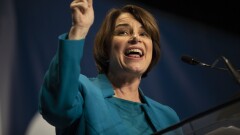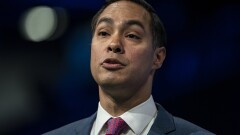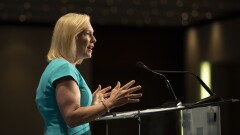WASHINGTON — It is still too early in the Democratic presidential primaries to gauge how much attention the candidates will give to financial services issues. But critical comments toward Wall Street by some of the candidates in the first series of debates last month point to an unfriendly political environment for the financial industry in the nominating process.
The debates highlighted the candidates’ general support for consumers over corporate interests in multiple industries.
“That was the message over and over,” Jaret Seiberg, a policy analyst at Cowen Washington Research Group, said in a note last week. “Candidates argued against big pharma, big tech, Wall Street, and other corporate interests. It seemed like each candidate has a plan on how he or she will tilt Washington away from business and to the average person.”
Isaac Boltansky, director of policy research at Compass Point Research & Trading, added in a note that banks may not be a specific target for the candidates, but will likely play a role in the discussions about economic inequality in general.
“We continue to believe that financial services is a secondary issue in the Democratic presidential race at this point, which suggests that topics of consequence for that segment of the market will be referenced primarily through the broader lens of economic inequality,” Boltansky said.
Here is a sampling of the leading candidates' financial policy views so far.
